It didn’t take long for thousands to stand in solidarity with victims of the Orlando terror attack, targeting the LGBT community. Countless individuals took to social media honoring the victims and their loved ones. Yet what happened to the LGBT community when the media shifted its attention? Did they receive a shift in support, only to see it plummet back down? What are some challenges they continue to face? In an effort to learn more, I decided to reach out to my good friend Matt Adler who strives to build bridges of understanding not only within the LGBT and Jewish community but also among various cultures. Below is my brief Q&A with Matt. Please enjoy and share!
Can you please introduce yourself and tell us a little bit about your background?
I grew up in the DC area as a Reform Jew in a progressive congregation. I recently wrote a blog about what it was like growing up gay in the Reform Movement and how it helped my coming out process:http://www.reformjudaism.org/blog/2016/06/01/how-reform-judaism-got-it-right-lgbt-people utm_source=Share&utm_medium=social&utm_content=Adler&utm_campaign=PrideMonth.
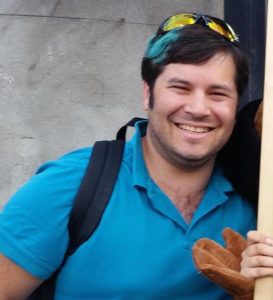
In addition to this, I am a progressive activist and I write multilingual poetry, brachot, piyyutim, and blogs. I love learning new languages and engaging with new cultures.
Are you currently involved in the Jewish Community?
Absolutely! I belong to a Reform shul but also hop around to various other synagogues – Conservative, Renewal, Reconstructionist, etc. I’m also studying Yiddish and have connected with some of the Yiddish institutions in the U.S. I’ve also practiced my Yiddish some in Hasidic communities where it is alive and kicking thanks to their diligence in preserving it. I regularly go Israeli dancing and enjoy participating in spiritual and cultural aspects of Jewish life. I love going to Jewish concerts and film festivals too!
Have you ever found it difficult to express your personal beliefs and/or ideology to others in the Jewish community? If so in what way?
At times I have. In terms of being gay, when I’m in the Jewish community, I’m a minority and when I’m in the gay community, I’m a minority. That’s part of the challenge of being a gay Jew- rarely am I in an environment where everyone “gets it”. That’s not to say there aren’t amazing allies in both communities, but it’s just a different experience to be among gay Jews where people get both of these important parts of my identity.
I find Jews I interact with to be generally progressive towards gay people, but people can still show prejudice or ignorance. For example, I was fortunate enough to have a gay Cantor growing up in my synagogue, but I remember someone asking me if he or his partner was the “man” in the relationship. Luckily my clergy- rabbis and cantor- and most Jewish educators at my synagogue were supportive. I imagine at the time I was growing up, whatever challenges I was facing in the Jewish world were probably much more difficult in non-Reform synagogues, though of course every person’s story is different and we shouldn’t automatically assume all Orthodox Jews are homophobic.
While gay rights can be controversial in parts of the Jewish community, I actually find it much more difficult to talk about the diversity of views related to Israel. I find that our community often lives up to the goal of pluralism. However, when it comes to letting different people with heartfelt opinions on Israel express themselves, they often get shut down. I’ve certainly felt this stigma, having been called a “self-hating Jew” for criticizing Israeli policy, even though I engage profoundly with the Israeli people and culture and care deeply about their future.
I hope that the growing acceptance of LGBT people in the Jewish community and respecting differences could extend to the way in which we talk about Israel and other issues too.
Countless individuals stood in solidarity with the LBGT community in lieu of the recent terror attack in Orlando. Yet few realize the daily challenges the LBGT community faces. What are some obstacles you feel the LBGT community has yet to overcome?
There are two main challenges facing the LGBT community today: legal subjugation and personal prejudice. In terms of the first one, most people think that because gay marriage is permitted, legal discrimination is over. That’s just not true. In most American states, it is legal to fire someone for being gay or transgender. You can also discriminate in housing or other services in most states. You can read more about these problems here: http://www.fastcompany.com/3057357/the-future-of-work/heres-everywhere-in-america-you-can-still-get-fired-for-being-lgbt. Gay marriage is great, but it’s not particularly helpful if you can’t get a job or a house. Another societal issue that could be fixed with legislation and disproportionately hurts gay people is the high cost of adoption or in-vitro fertilization. This makes it more expensive and harder for gay people to have children. People need to learn more about legal discrimination against gay people so we can fix this situation.
The second issue is personal prejudice. Due to personal prejudice, for instance, many gay teens are thrown out of their homes, making 40% of all homeless youth LGBT (https://truecolorsfund.org/our-issue/). Many are unable to make a living or find a safe shelter. You have the more day-to-day prejudice that I experienced growing up, where people told me “I support gays, but don’t believe in transgender or bisexual people” (as if this is a thing to believe in, it’s just a fact!) or straight people I just met ask me if I’m a top or a bottom. And of course there was a lot of throwing around of the word “faggot”. I was once walking down the street at night in Silver Spring, MD and a man harassed me for 5 minutes yelling homophobic insults at me. This is a real issue and it ranges from ignorance to outright hatred. While it may be more vigorous in conservative areas, it’s also a very real problem in blue states.
What’s a positive yet constructive way to educate the Jewish community about other cultures and identities that compose the Jewish faith?
I think one of the benefits of being a double minority- a gay Jew- is that it makes me even more sensitive to the experience of other minorities. It made me even more curious to seek out other groups of people who feel marginalized and join them in celebrating their communities. As you know, this is part of what I enjoy about learning Farsi- I’m learning not only about broader Persian culture, but it also gives me a window into Persian Jewish life. Every language I learn brings me closer not only to another culture, but also to the Jewish life being lived by people who speak that language. Frankly, being gay has also been a factor in my decision to learn Yiddish, to connect with my own Jewish culture. There have been numerous articles showing a disproportionately high number of progressive Yiddish learners are LGBT (http://www.huffingtonpost.com/2014/05/06/klezmer-queer_n_5268195.html). I think part of this is a desire to feel connected to a long history of progressive thought in our community that is written and expressed in Yiddish that we’ve lost touch with. But also there’s something else at work here. If Hebrew is a “top”, then Yiddish most certainly is a “bottom”. I think it shares this with other Jewish languages like Ladino. Yiddish is the language of the oppressed, so I think as a gay Jew I identify with it, even though I also speak Hebrew and love it. It’s just a different experience. I think much as Persian Jews wrote Judeo-Persian poetry and Yemenite Jews wrote Judeo-Arabic piyyutim and Ashkenazim wrote Yiddish literature, gay Jews have also had to construct our own language to give us the space we are denied in society. Being a repressed double minority makes me even more aware of the diversity within the Jewish community and the need to recognize it, learn about it, and support it. We need to make more space in the Jewish community for our community’s minorities to talk to each other.

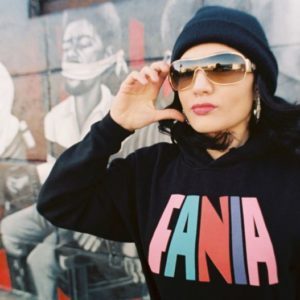
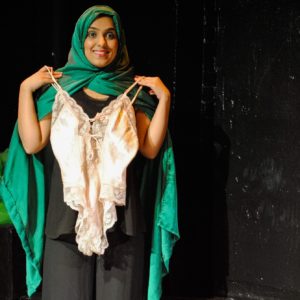
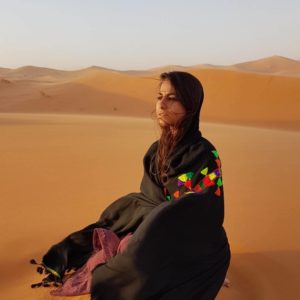
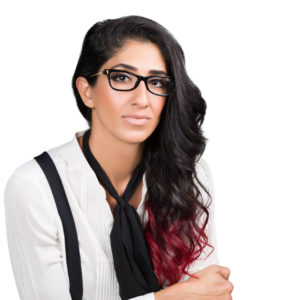
Leave a Reply